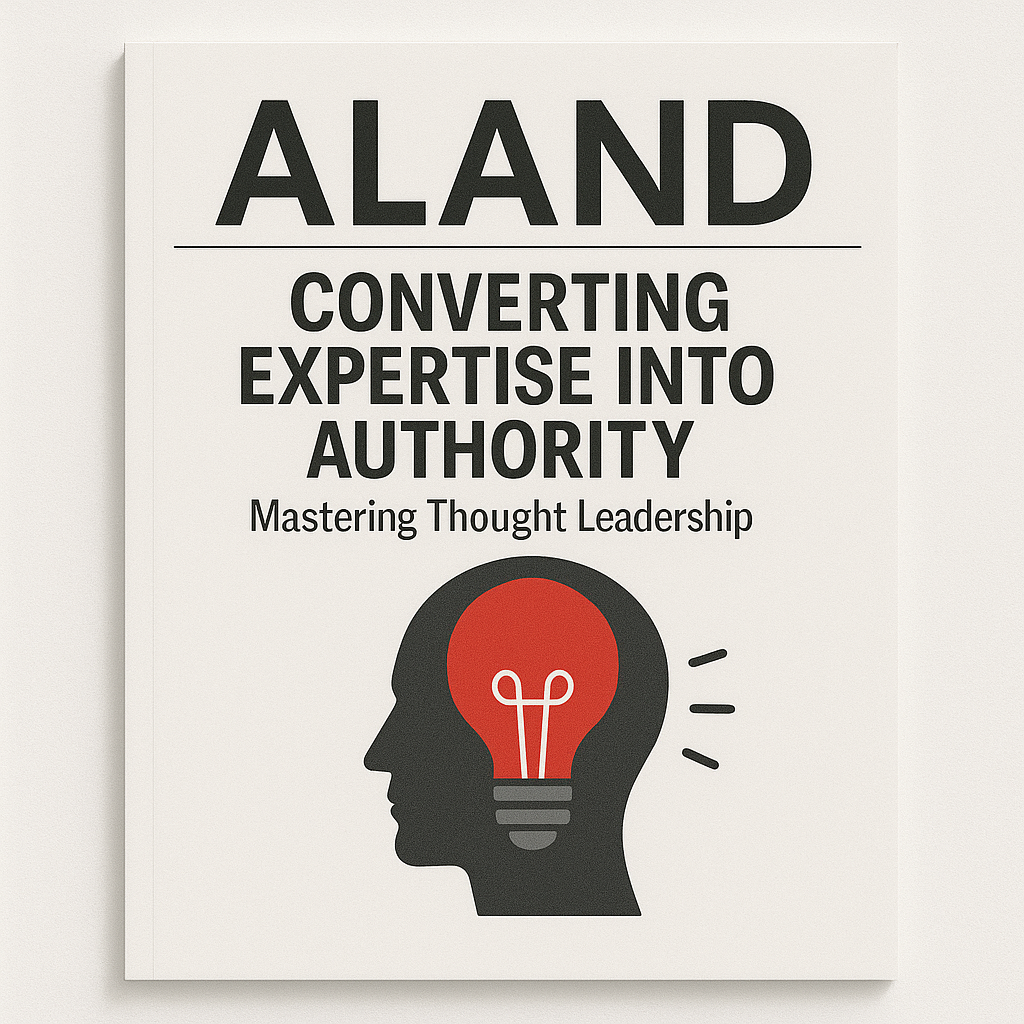Converting Expertise into Authority: Mastering Thought Leadership
- Published Date: 5th Jun, 2025
-
4.8★ ★ ★ ★ ★(104)

Why True Authority Is No Longer About Titles—It’s About Influence
In every era, there are those whose knowledge shapes industries, guides investment, and moves societies. But in today’s digital-first, borderless world, the difference between having expertise and wielding authority has never been greater—or more essential.
We all know people with remarkable depth in their field whose voices are lost in the noise, while others, sometimes with less substance, command entire conversations, policy shifts, and market movements. What explains this gap?
The answer lies in the deliberate construction of thought leadership.
Authority is not merely what you know; it’s your capacity to translate expertise into public influence—by sharing unique insight, building trust, sparking dialogue, and consistently showing up in the places your peers, clients, and industry look for guidance.
I have witnessed this transformation firsthand, both in global markets and through building the ALand Platform. Real authority is earned, never given—and today, it’s achieved by design. This article is your practical blueprint, informed by real experience, to convert expertise into enduring authority.
The Critical Shift: From Quiet Expert to Visible, Trusted Thought Leader
Why Expertise Alone No Longer Wins
The democratization of information means that knowledge is everywhere. What’s scarce now is trusted perspective—voices that not only understand complexity, but can distill, contextualize, and inspire action.
True thought leaders are those who elevate the discourse, reveal what others overlook, and create a gravitational pull around their ideas.
The Power of Public Intellectual Capital
Thought leadership is not vanity. It is a tangible, strategic asset.
When your expertise is visible, shared, and valued by your industry, you:
-
Attract high-quality opportunities and partners
-
Command greater influence in negotiations and public debate
-
Build trust that withstands market cycles and crises
-
Create legacy—impacting others and shaping the future
In a world where even the most established markets can shift overnight, the authority you build through thought leadership is an “anti-fragile” asset.
Wizard Action Plan: Five Steps to Authority
1. Define Your Top Five “Non-Obvious” Insights
How:
-
Audit your experiences for lessons others miss: mistakes, patterns, or counterintuitive outcomes.
-
Ask: “What do I know that surprises my peers?”
-
Test these insights with trusted colleagues or clients.
2. Write and Publish One Expert Article Per Week
How:
-
Focus on actionable insights, not just abstract theory.
-
Share case studies, cautionary tales, and forecasts.
-
Rotate between big-picture trends and practical guides.
3. Reach Out to Industry Podcasts or Webinars for Guest Spots
How:
-
List the top ten podcasts or events your ideal audience follows.
-
Pitch your most provocative insight as a topic (“What nobody’s talking about in…”).
-
Follow up with social posts or article recaps after each appearance.
4. Curate and Comment on Industry News Daily
How:
-
Use LinkedIn, Twitter/X, or your blog to spotlight breaking news or trends.
-
Add brief, sharp commentary (“Here’s what matters and why…”).
-
Tag relevant experts to create dialogue.
5. Build a Digital “Portfolio” of Your Best Public Insights
How:
-
Create a simple personal site, blog, or pinned LinkedIn post that collects your best articles, interviews, and keynotes.
-
Refresh it quarterly to keep your authority current.
-
Include testimonials or results where possible.
The Ripple Effect: From Authority to Opportunity
When you intentionally build authority, you move beyond the reach of transactional competition.
-
Your phone rings with speaking invitations, media requests, and new business.
-
Policymakers and investors seek your view before acting.
-
You shape industry standards—and, in time, influence the trajectory of your field.
The rewards are more than commercial; they are personal and societal. Authority lets you mentor at scale, leave a mark, and future-proof your reputation.
Thought Leadership Is a Discipline, Not a Gift
Everyone with deep expertise has the potential for influence. The difference between a hidden expert and a recognized authority is a deliberate, consistent practice—of publishing, dialoguing, and distilling wisdom for others.
Start with one insight. Publish one article. Share your take on the news. Collect your impact. Over time, you will not only be part of the conversation—you will lead it.
About the Author
Dr. Pooyan Ghamari is a Swiss Economist, global strategist, and Founder of the ALand Platform. Recognized for his impact across international finance, real estate, and economic transformation, he helps professionals and institutions turn deep expertise into visible, lasting authority. Dr. Ghamari is committed to advancing knowledge, mentoring leaders, and building the digital economies of the future.

